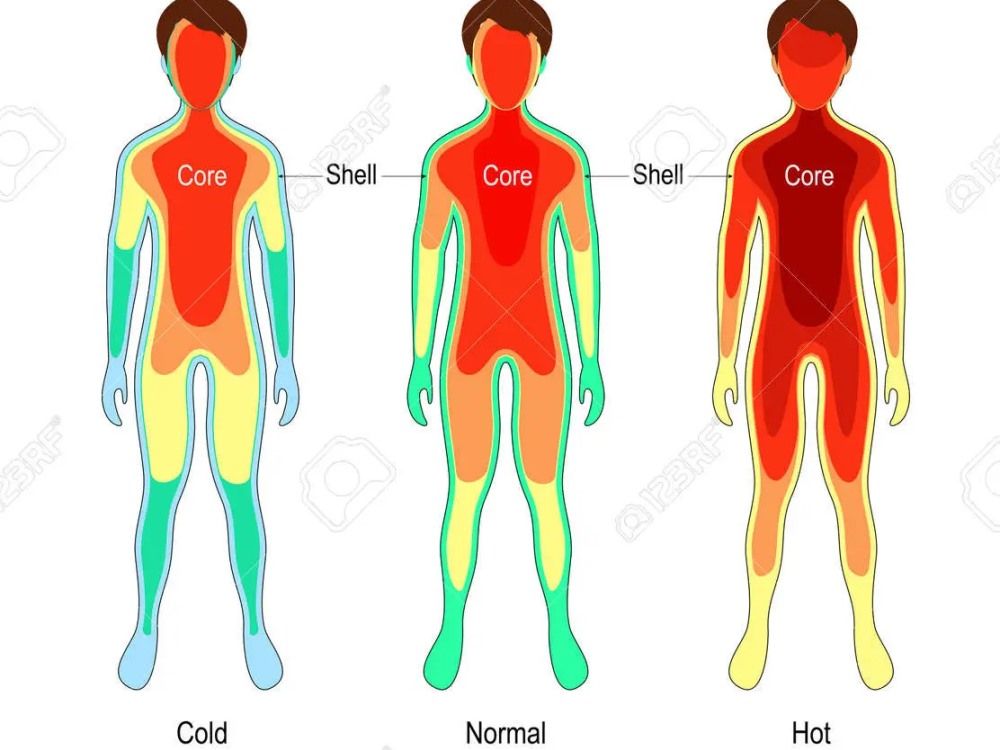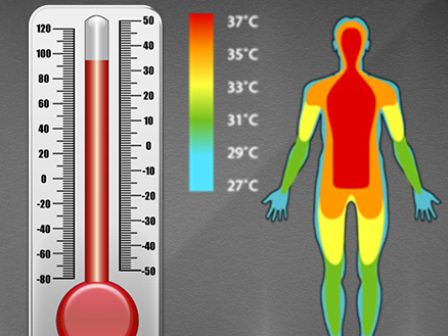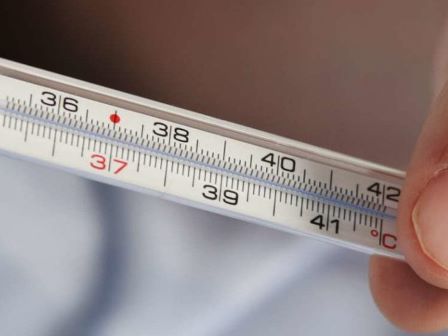Normal human body temperature varies by person, age, activity, and time of day. Average normal body temperature is generally accepted at 98.6 ° F (37 ° C). Some studies have shown that “normal” body temperature can have a wide range, from 97 ° F (36.1 ° C) to 99 ° F (37.2 ° C).
A temperature above 100.4 ° F (38 ° C) usually means you have a fever caused by an infection or illness.
Body temperature normally changes throughout the day. Human Body temperature is the evaluation of how your body generates and loses heat.
When it rises, the blood vessels in your skin expand to dissipate excess heat to its surface, which is if you sweat and it evaporates, your body cools.
On the contrary, when the temperature drops, our blood vessels tighten; reducing blood flow to your skin to save heat, that’s why we get chills.
It is an instinctive response from your muscles intended to help your system develop more heat and rewarm your blood.

Human Body temperature range
Your human body temperature can rise and fall and in all directions, but it usually stays within a certain window.
Normally, anything in the range of 97 to 99 degrees Fahrenheit is considered normal. But there are times when a perfectly healthy person may have a slightly higher or lower body temperature than that.
Your “normal” human body temperature also changes throughout your life. It often works its way up from childhood to adulthood before plunging into the later years of life.
By age range, it looks like this, with temperatures for an oral reading.
| 0 to 10 years old | 95.9 F (35.5 C) to 99.5 F (37.5) |
| 11 to 65 years old | 97.6 F (36.4 C) to 99.6 F (37.6 C) |
| Over 65 years old | 96.4 F (35.8 C) to 98.5 F (36.9 C) |
Is there a “best time” to take a temperature?
There is usually a reason you head to the medicine cabinet to grab your thermometer: Someone in the house is not feeling well.
Consider the ideal time to take your temperature given the important health information the reading provides.
However, you should know this: body temperatures are usually a little lower in the morning and a little higher in the afternoon. For women, it can also fluctuate depending on where you are in your menstrual cycle.
What is the normal body temperature?
Your body has an internal thermostat and your goal is to keep your temperature as close to your goal as possible. The stability of that number, known as your core body temperature, reflects your body’s ability to heat up or cool things down to stay within your ideal range.
Each day, your body has plans to adjust its temperature to follow your circadian rhythm by warming it up to start the day and cooling it down for sleep.
However, diet, exercise, hormones, and many other things affect your temperature. As a result, your body is constantly making adjustments to keep everything balanced.
When it is too hot, your body tries to radiate or eliminate heat by widening the blood vessels to carry excess heat to the surface of the skin.
As sweat evaporates from your skin and your blood loses heat to the air, your body cools down.
When you are too cold, your body tries to insulate or trap heat by narrowing the blood vessels in the skin so that the blood keeps more heat in its core, as well as raising the temperature through the chills.
The normal temperature of human body
Body temperature is vital to health, which is why it is among the “vital signs,” along with the blood pressure, heart rate, and breathing rate that your doctor routinely monitors.
These measurements are absolutely critical when evaluating a person who may be ill, because significant abnormalities can indicate a serious, even life-threatening illness.
Thousands of chemical reactions that occur simultaneously and continuously in the body require a fairly narrow temperature range.
As a result, the body does not tolerate large fluctuations in temperature very well.
In fact, severe hypothermia, low body temperature, or hyperthermia, high body temperature, can cause permanent organ damage or death.
That is why the body has such an elaborate thermoregulation system that it keeps the body temperature close to ideal most of the time.
Fever is typically any temperature above 100 ° F. The most common cause of fever is any infection in the body, but there are other causes, such as heat stroke or a reaction to a medication.
Although you can get sick with a normal temperature, your body temperature is clearly an indicator of your health.

Normal Body Temperature
Your body has an internal thermostat and your goal is to keep your temperature as close to your goal as possible. What’s the normal body temperature?

Celsius to Fahrenheit Fever
Human body temperature information and conversion tables include normal, high and low readings and fever readings from Celsius to Fahrenheit.

Fever in adults when to worry?
Fever is a temporary increase in body temperature and a sign that your body is fighting an illness or infection.
